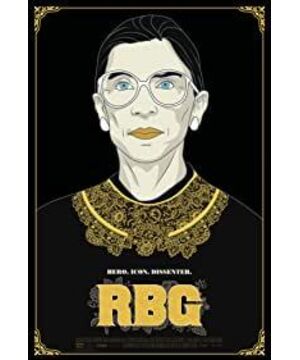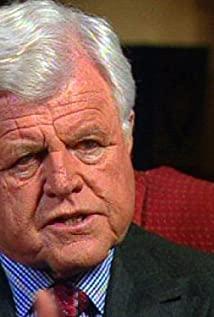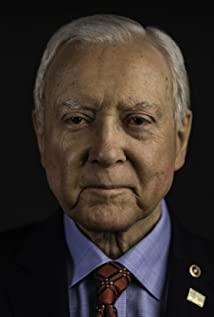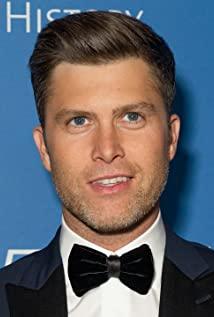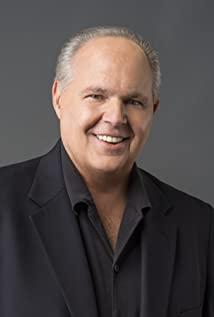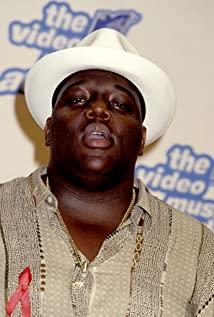When she passed away more than a year ago, I came here to click on this documentary. When I was just finishing school in my twenties and had a lot of time to "think/explore life", I really wanted to explore the history of women's rights. From the origin of Women's Day, read all the way to Ginsburg.
When I watched it, I had a lot of feelings in almost every part. I kept taking screenshots, especially when I played the original sound of the young Ginsburg in court, I felt like crying for no reason. I really want to hear the whole thing. Version. From the first time she faced a row of male judges who didn't know what sexism meant to convince them women were treated as second-class citizens, to when she took office, she said thank you to all men & women who kept dreams of equal citizenship alive , it's only a few decades.
The following is a summary of what I have seen from her in the summary I wrote back then, and the reflections brought about by these visible history.
1. The way to win an argument is never by shouting . The more angry you are, the more people will turn away from you rather than make them agree with you.
This is very worthwhile for me to learn personally. At work, learning to find common ground is very helpful for us. While I can't say how well I've done it myself, RBG has certainly inspired me a lot. When you need to convince the other party or let the other party understand a problem that they have not yet realized, find out what their goal and appeal are, and use this consensus point as a starting point.
For example, RBG said in the film that no one does not want economic progress, and no one can deny the principles of human rights in the U.S. Constitution. She is particularly good at seeking common ground while reserving differences. After she became a justice, one of the original words of her speech was: "I surely would not be in this room today without the determined efforts of men and women who kept dreams of equal citizenship alive." Men and women, this is indeed true One of the essence of all human beings is a humanitarian matter that requires the joint efforts of all men and women. Pinpin this pattern.
2. Women can really be in various shapes . In addition to personal characteristics, the image of a successful woman can also be in any shape . In addition to the superior wisdom and professional ability, there is no so-called template for other external appearance and internal character. (Of course, the same is true for men.) Excellent professional level and sufficient resourcefulness will determine whether you will succeed or not. Your appearance and personality, even if you do not have advantages, should not be an obstacle to you.
I have to admit that maybe because my mother taught me too much when I was a child, "a good student should dress up and have what kind of character", I actually subconsciously felt that if I also had similar dress, preferences, words and deeds to someone else, then I would also Will be as "excellent" as she is. But it happens that the "good grades" around these children are quite different from my own appearance: when reading, "other people's children" are very quiet, which makes me feel that walking around the classroom is impetuous. My own liveliness and cheerfulness seem to be the original sin of not getting good grades; when I grew up, I felt that a "powerful woman" is to be fast-talking and not easy to bully, so when I work with men, I always deliberately use more than the original. When I speak with a much lower voice, I feel that my attitude is mild and the momentum is weak, which means that I have no right to speak. (Although I later read a book of nice girls still don't get the corner office, saying that a calm tone and a low voice would be better for you, but this is just giving in and taking advantage of the bias in people's minds.)
Not to mention that the above stereotypes didn't come to my senses until I grew up a long time ago... The image of Ginsburg broke in my mind for the first time for the "strong women" that may have been shaped by the media She looks small in the crowd. According to the film, she has a more introverted and serious personality, smiling friendly and humble in front of the media. Forty years ago, she was in the Supreme Court for the first time. Just using her own clear voice, facing a table of male judges who don't know what sexism is, she calmly and calmly stated her powerful logic. She was never angry when faced with mocking counterattacks. With a calm and serious tone, she has her own set of methods to draw the other party into consensus, and strike back with a straight face. In short, whether you think she is a "weak woman", or whether she adds female elements such as lace to her judge's clothes, this It didn't affect her in the courtroom loudly, pressing for questioning, showing strong wisdom and logic.
In the final analysis - things other than these "standards in the professional field" have nothing to do with your performance in the professional field. The first step to breaking a stereotype is to not judge yourself by the stereotype. A girl can dress up in any way, and at the same time has excellent professional skills.
But from another angle, you can use Ginsburg as a template and say that Gloria Steinem (who played her in Hulu's Mrs. America) took to the streets and complained loudly, "I refuse to accept that this society treats us as second-class citizens", to set off Are some waves not considered "good" affirmative action activists? Does not. (I mean Ginsburg's "be a lady don't get caught up in anger is certainly elegant and worth learning, but not every female athlete has to be a lady.) They're just in different fields. , changing the world in different ways. This reminds me that in today's world, some people speak for gender inequality through their own words, speeches, news topics, media images, etc.; some people insist on their preferences and pursuits that are inconsistent with mainstream stereotypes, or let themselves become A person who is not prejudiced whether at home or in the workplace, these people are an influence in themselves; there are also people who are willing to dedicate their extra time and energy to help the younger generation more directly through some activities. In short, when you look at women who have expressed various opinions in the long history of history, they are all the forces that push the torrent of history little by little. At this time, I finally figured out that if you want to make some contribution to the world, or you want to achieve something a little bit more ego, no matter what you are like, it will not prevent you from exerting your strength in the really crucial places. 3. What exactly is "gender-free"?
In the case of the VMI Military Academy's rejection of female cadets more than 30 years ago, Ginsburg's summary in court perfectly contained my understanding of "gender fairness": "There are some women who meet the VMI Military Academy's physical fitness standards for male cadets and are fully capable. Perform all the tasks that VMI requires for the students, and also want to join the military academy, but the military academy refuses to accept it. Such a rule denies a woman to volunteer, achieve achievements, participate and contribute based on what she can do. Equal rights and interests in society." In fact, this perfectly sums up my personal understanding of "unbiased": 1) Judge a person's ability with ** professional standards** without any gender bias . This point is to hope that all places where talents are selected (campus + work unit) can strengthen more self-education (for example, foreign companies will have training that emphasizes equity inclusiveness. Thanks to Ginsburg's legal efforts, at least no one dares to make it clear. show discrimination), and it is also that every boy and girl should not use gender to limit their professional ability . If the level is high, it is not good, but it is not good. If you are professional or not, don't talk about gender. 2) Equality between the sexes is mutual . If women cannot develop according to their own wishes and contribute to society due to various restrictions, it will not benefit anyone - the stipulation that "only men can do something" is destined to be a restriction on men, and a lack of social resources. Fair distribution, so it's not good for humanity as a whole in the long run. 4. The "feminist movement" was originally about equal rights. According to the analysis above, when both sexes have equal rights, everyone in the society will benefit in the long run . The reason why we call it "feminist rights" is because in those days, in black and white laws, women's real rights were equivalent to "second-class citizens". the same civil rights."
Just forty years ago, it was common in the law to say that the husband was the head of the household, and he could choose where to settle and his wife had to comply; employers could fire women because they were pregnant; banks could require women applying for credit to Co-signing with husband... You taste, you taste carefully, and there is still a very common problem of unequal pay for equal work. It was women like Ginsburg who first started to speak up, started to make breakthroughs in various fields, and cooperated with men, step by step to achieve today's situation.
However, in this day and age, the word "feminist" has always had all kinds of strange misinterpretations and stigma on the Internet, so that I was reluctant to say "feminism" out loud until I learned about this history, and just used " Equality" term. But now, looking back at its origins, the more I understand the extremely unequal society at that time, the more I feel the changing status of women in history and Ginsburg's ability. 5. It's a movie-watching Easter egg -- a fairy love with Marty.
Not much to say, go directly to the original text, I think it is very romantic and I have excerpted it:
RBG: "I became a lawyer because Marty supported that choice, unreservedly. He was the first boy I ever knew who cared that I had brain. But Marty was so confident of his own ability, so comfortable with himself, that he never regarded me as any kind of a threat."
Friend: "He allowed Ruth to be who she was, that is, a relatively reserved, serious person, who focused on her law work and loved doing that. And the relationship was just magnificent to watch."
When Marty was suffering from cancer, Ginsburg took on the job of taking care of the children and helping Marty make up lessons at night, so busy that he could only sleep two hours a day. When Ginsburg ran for justice, Marty had a lot of support behind him. Ginsburg has a serious personality, and Marty has a natural sense of humor, and he always makes Ginsburg happy.
I didn't know this justice well before, and I really didn't expect to see such a love that refreshed my cognition, and there was a feeling of "believing in true love again". Specifically, in a society where basically everyone has all kinds of stereotyped influences and prejudices in their hearts, how can there be such a real couple who can be a perfect match for themselves? It's a question of whether it will happen to me, but for my ideal concept of love, I'm amazed that it actually exists in reality, and I'm moved purely by itself.
After reorganizing the previous notes, I decided to send it out, and I also started to read her autobiography. Thinking that the first time she went to court in the documentary, she may be about the same age as I am now, and the tech industry seems to be almost the same as when she was in the legal industry. Male-dominated women are rare, and I feel that I have more power in my life and work now.
RIP, RBG.
View more about RBG reviews


